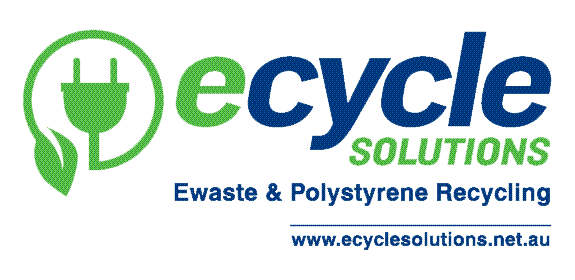Brought to you by
Ecycle Solutions provides the public with free recycling drop-off points for TVs, computers, computer accessories, and printers. Find out more.
Computers and computer accessories should never be put in your household recycling bin. Computers can be dropped off for recycling at designated collection points located around Australia.
Australia has a free national recycling scheme for computers which accepts monitors, laptops, keyboards, computer mice, printers, scanners, webcams, computer cables, chargers, hard drives, and motherboards.
The National Television and Computer Recycling Scheme
Australians are among the highest users of new technology in the world, purchasing nearly 5 million computers every year. This makes electronic waste or e-waste a growing problem. To help keep computers out of landfill, the Australian Government created the National Television and Computer Recycling Scheme. Every company that makes and/or imports computers into Australia is required to pay for the end-of-life recycling of these products. That means, you can drop-off your old computer for recycling for free.
Computer products accepted in the scheme include: monitors, laptops, keyboards, computer mice, printers, scanners, webcams, computer cables, chargers, hard drives, and motherboards. Some recyclers will also accept modems and routers (check directly before dropping it off).
There are five organisations that recycle computers and computer accessories under the scheme: Ecycle Solutions, Ecocycle Pty Ltd, TechCollect, Sustainable Product Stewards Pty Ltd, The Activ Group Solutions Pty Ltd (Ecoactiv).
How to recycle computers at work
There are some recycling companies that offer national collection services for commercial quantities of computers. To find a commercial computer recycling service for your workplace or business, visit Business Recycling.
Why should I recycle my computer?
Every year Australians purchase millions of computers and related components to replace older equipment. If the older models are sent to landfill, the materials used to make the products are wasted. Many of these materials like tin, nickel, zinc, and copper are non-renewable, finite resources, making them even more important to recover.
Some states such as the Australian Capital Territory, South Australia and Victoria have banned electronic products from landfill.
Recycling your old or broken computer keeps these valuable materials in use for as long as possible, reducing the need to extract new or ‘virgin’ materials from the ground. It also protects our environment from the hazardous materials found in computers that must be disposed of responsibly.
- Older style monitors contain cathode ray tubes (CRT) which contain lead.
- When dumped in landfill, the materials and chemical components used to make computer equipment such as lead, mercury, cadmium and arsenic can leach into the soil and groundwater, causing harm to our environment and human health.
What happens to my computer when I recycle it?
Computers and computer accessories that are in working order can often be refurbished with new software and some replacement parts. These repackaged computers are generally made available to low-income communities, individuals, and community organisations.
Electronic products that are collected for recycling generally undergo a manual dismantling process. The individual materials such as printed circuit boards, cables, glass and plastics are recovered and then processed so they can be used as raw materials to produce new products.


